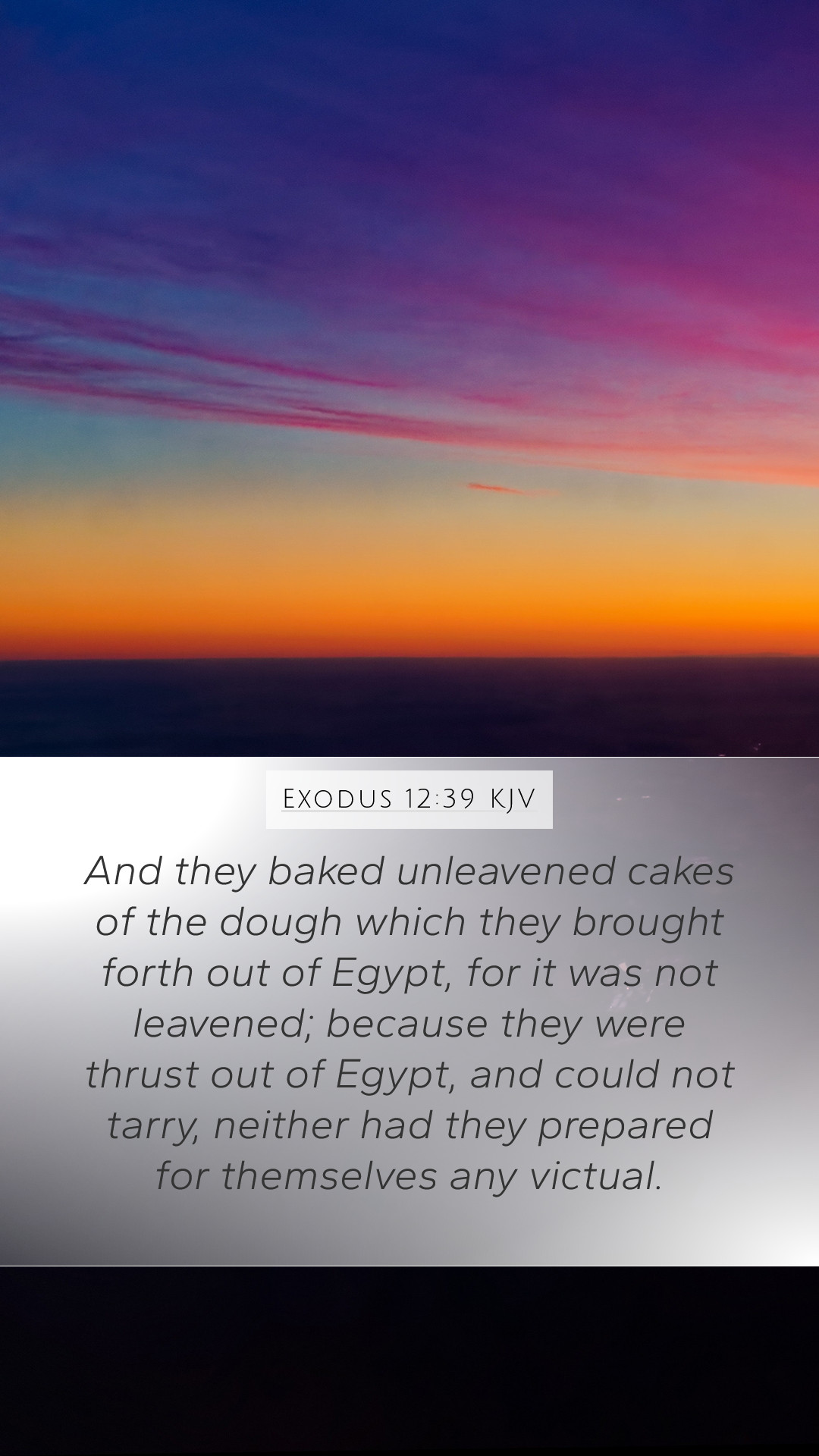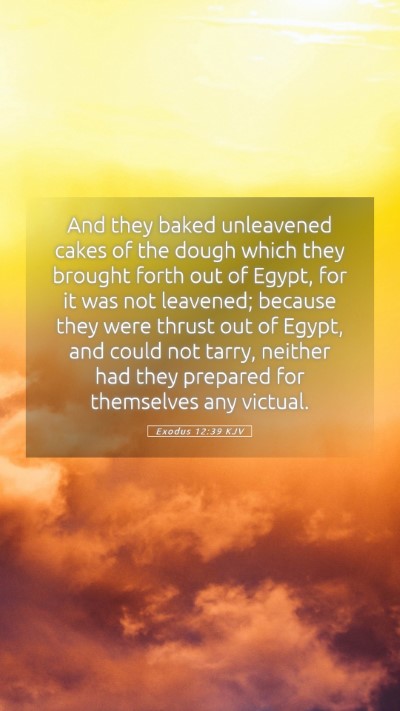Understanding Exodus 12:39 - A Comprehensive Bible Verse Commentary
Exodus 12:39 states: "And they baked unleavened cakes of the dough which they brought forth out of Egypt; for it was not leavened; because they were thrust out of Egypt, and could not tarry, neither had they prepared for themselves any victual."
Overview of Exodus 12:39
This verse is a significant part of the narrative describing the Exodus of the Israelites from Egypt. It illustrates the haste with which they left, highlighting both the physical and spiritual dimensions of their departure.
Insights from Public Domain Commentaries
-
Matthew Henry's Commentary:
Henry emphasizes the urgency of the Israelite's exodus, noting that they had no time to prepare traditional food. The unleavened bread symbolizes their sudden freedom and the beginning of their journey towards the Promised Land.
-
Albert Barnes' Notes:
Barnes elaborates on the significance of unleavened bread, connecting it to the feast of unleavened bread instituted later. He interprets the absence of leaven as a symbol of purity and separation from Egypt's corrupting influences.
-
Adam Clarke's Commentary:
Clarke provides a historical context, explaining the customs of the time. He notes that the Israelites' preparation was not only for physical sustenance but also represented spiritual readiness to leave behind their former lives in Egypt.
Thematic Significance
Exodus 12:39 reflects several key themes:
- Deliverance: The verse captures the moment of deliverance as the Israelites are freed from slavery.
- Obedience: Their quick departure illustrates their obedience to God's command.
- Faith: Leaving without provisions demonstrates a reliance on God's promises for their future.
Bible Verse Interpretation and Exegetical Analysis
The interpretation of this verse leads us into the realms of biblical exegesis, focusing on:
- Historical Context: Understanding the historical backdrop of the Exodus helps grasp the significance of the unleavened bread and the urgency of the Israelites' departure.
- Theological Implications: Unleavened bread serves as an early symbol of Christ, representing purity, sacrifice, and the new covenant.
- Practical Applications: This event encourages believers to leave behind sin and worldly attachments, symbolizing a spiritual exodus toward a life of faith and obedience.
Application of the Verse to Daily Life
In applying Exodus 12:39 to contemporary life, we can draw several lessons:
- Readiness to Follow God's Call: Just as the Israelites had to be prepared to leave quickly, we too must be ready to act when God calls us.
- Letting Go of the Past: The departure from Egypt symbolizes releasing old habits and sin, which is crucial for spiritual growth.
- Trusting in God’s Provision: Like the Israelites, we are encouraged to trust in God for our needs, especially when stepping into the unknown.
Cross References
This verse connects with several other scripture passages:
- Exodus 12:15: Instructions on removing leaven during the Feast of Unleavened Bread.
- Exodus 12:17: The command to observe the Passover and commemorate God's deliverance.
- 1 Corinthians 5:7-8: New Testament reference to unleavened bread as a metaphor for purity among believers.
Conclusion
Exodus 12:39 serves as a powerful reminder of the urgency of our spiritual journeys and the importance of leaving behind what holds us captive. As we seek Bible verse meanings and Bible verse interpretations, may we find encouragement in the exodus of the Israelites and apply their experiences to our lives in seeking a deeper understanding of Scripture.


